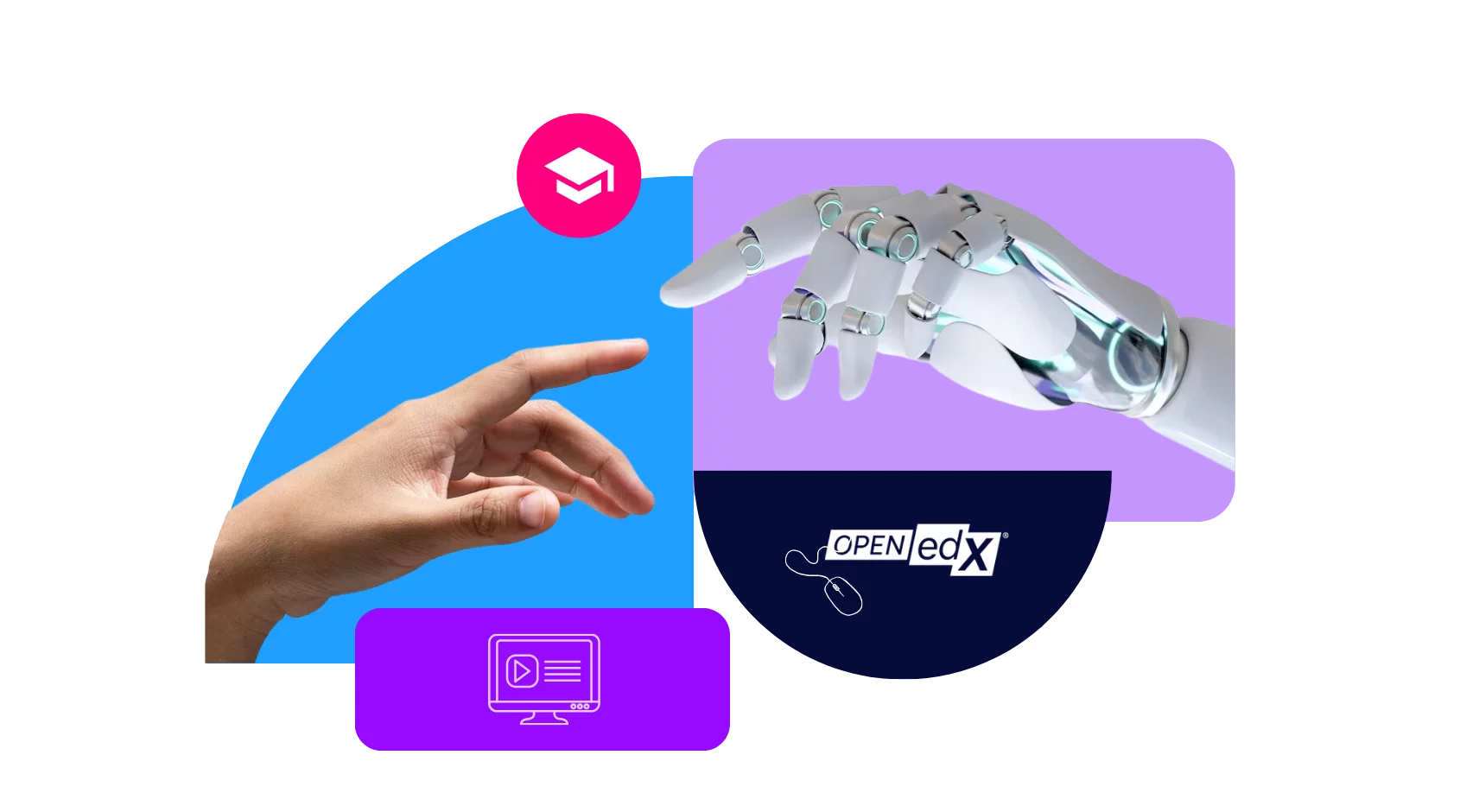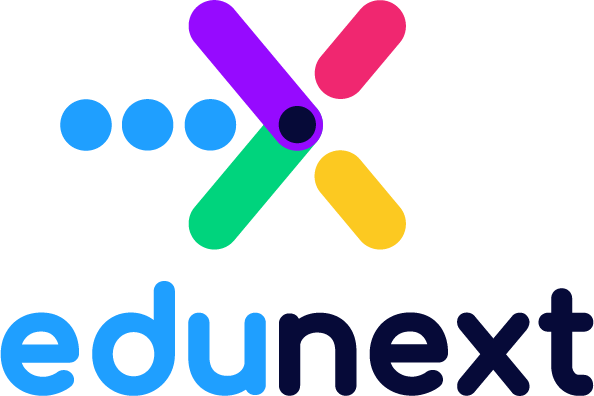Table of Contents
Artificial Intelligence (AI) has become integral to various industries, and education is no exception. With advancements in technology, AI can potentially revolutionize the learning experience for students and instructors, according to UNESCO. Likewise, the World Economic Forum has affirmed that advances in artificial intelligence (AI) could transform education systems and make them more equitable, accelerating the long overdue transformation of education systems towards inclusive learning that will prepare young people to thrive and shape a better future. In this blog post, we will explore the applications of AI in the educational field, focusing specifically on its use in the Open edX Learning Management System (LMS).
But before we get into the subject, to clarify terms, artificial intelligence is a branch of computer science that focuses on creating intelligent machines that can simulate human behavior and perform tasks that typically require human intelligence. AI encompasses various subfields, such as machine learning, natural language processing, and computer vision.
In the educational field, AI has the potential to enhance personalized learning, improve student engagement and motivation, as well as streamline administrative tasks in the education field. Let’s take a closer look at this.
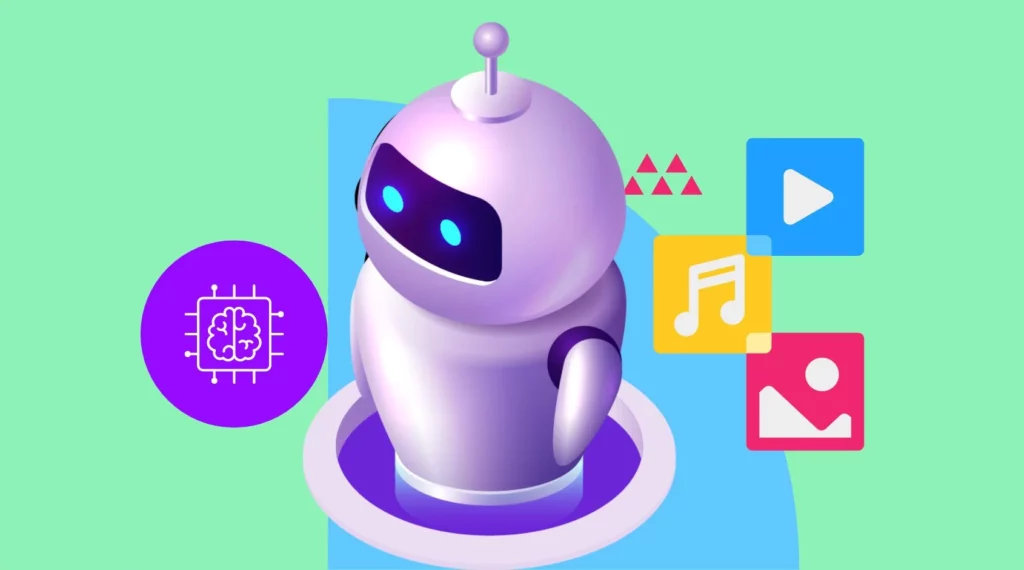
A. Enhancing Personalized Learning
Adaptive Learning Algorithms
AI can theoretically tailor educational content and activities to suit each student’s needs and abilities. These algorithms can provide personalized recommendations and adaptive assessments by analyzing student data, such as their performance and preferences.Intelligent Tutoring Systems
One of the possible uses for AI in education is to provide personalized guidance and feedback to students. These systems can analyze student responses and provide targeted explanations and additional resources to help students grasp complex concepts.
B. Improving Student Engagement and Motivation
Virtual Assistants
The idea of these assistants, powered by AI, is to interact with students conversationally. These assistants could answer questions, provide guidance, and support, enhancing student engagement and motivation.
Gamification Techniques
Instructors can use AI to incorporate gamification techniques into learning. By adding elements of competition, rewards, and achievements, gamification can motivate students and make learning more enjoyable. Read How to add gamification to the Open edX platform to learn more about this topic.
C. Streamlining Administrative Tasks
Automated Grading
AI can automate the grading process by analyzing student responses and comparing them to predefined criteria, saving instructors valuable time and allowing for faster feedback. According to McKinsey & Company reports, technology can help teachers to reallocate 20 to 30 percent of their time toward activities that support student learning.Data Analytics for Performance Tracking
AI-powered data analytics tools can track student performance in real-time, providing instructors with actionable insights to identify areas where students may struggle or excel.
Most of these resources are still in beta testing, and there are numerous proposals from several companies to develop ed-tech using the technology that AI provides.
The Role of Artificial Intelligence in the Open edX LMS
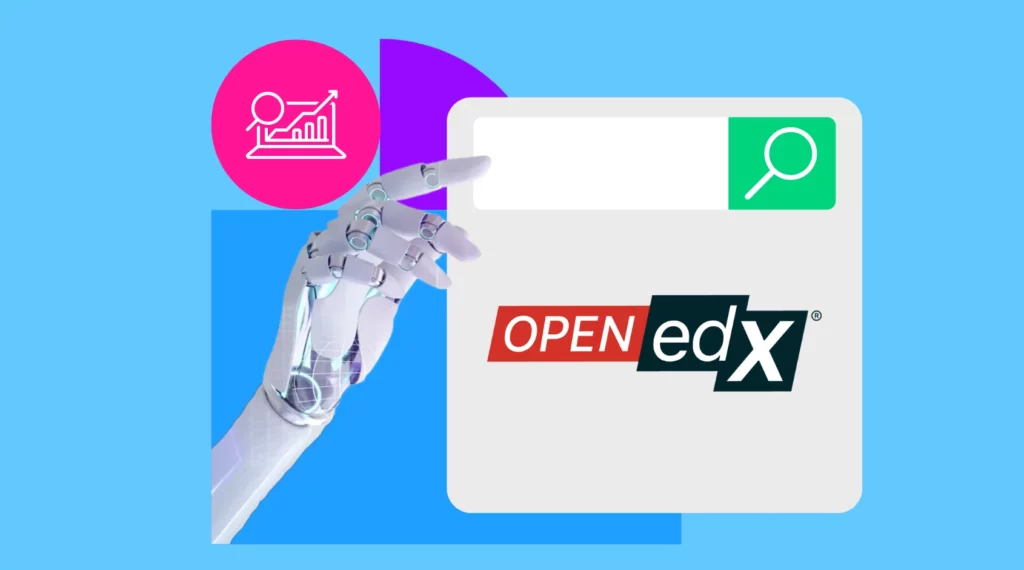
The Open edX LMS recognizes the potential of AI in education and has integrated AI tools into its platform to enhance the learning experience. Open edX supports the integration of various AI tools that course instructors can utilize. These tools range from personalized course recommendations to automated grading and real-time analytics for instructors.
Examples of AI Features in the Open edX LMS
Personalized Course Recommendations
The Open edX LMS leverages AI algorithms to provide personalized course recommendations based on a student’s interests, goals, and previous learning experiences. This feature helps students discover courses that align with their specific needs.Automated Grading and Feedback
Course instructors using the Open edX LMS can use AI-powered automated grading systems. These systems analyze student responses and provide instant feedback, saving instructors time on manual grading tasks.Real-time Analytics for Instructors
The Open edX LMS offers real-time analytics dashboards that give instructors insights into student engagement, performance, and progress. This allows instructors to identify areas where students struggle and adjust their teaching strategies accordingly.
Incorporating AI into the Open edX LMS can bring several benefits to both students and instructors.
Improved Learning Outcomes
By personalizing the learning experience, AI can help students grasp concepts more effectively and at their own pace. This personalized approach can improve learning outcomes and increase student success rates.Time-saving for Instructors
Automating administrative tasks such as grading and performance tracking saves instructors valuable time, allowing them to focus on providing quality instruction and engaging with students.Enhanced Student Satisfaction
AI-powered features like virtual assistants and gamification techniques can enhance student engagement and motivation, increasing satisfaction with the learning experience.
Challenges and Considerations When Implementing AI in Education

While the potential of AI in education is vast, as educators, we must address several challenges and considerations when implementing AI-powered systems.
Ethical Concerns
There are ethical concerns about data privacy, equity, and transparency while using AI. Institutions must establish guidelines and policies to ensure the responsible use of AI in education.Data Privacy and Security
AI relies on vast amounts of data to make informed decisions. Institutions must prioritize data privacy and security to protect sensitive student information from unauthorized access. To learn more about security in Open edX, read Understanding Open edX Security Vulnerabilities.Technical Limitations
AI-powered systems may face technical limitations, such as algorithm biases or the need for robust infrastructure. Institutions should consider these limitations when selecting and implementing AI tools.
What to Have in Mind to Incorporate AI in Your Courses Using the Open edX LMS
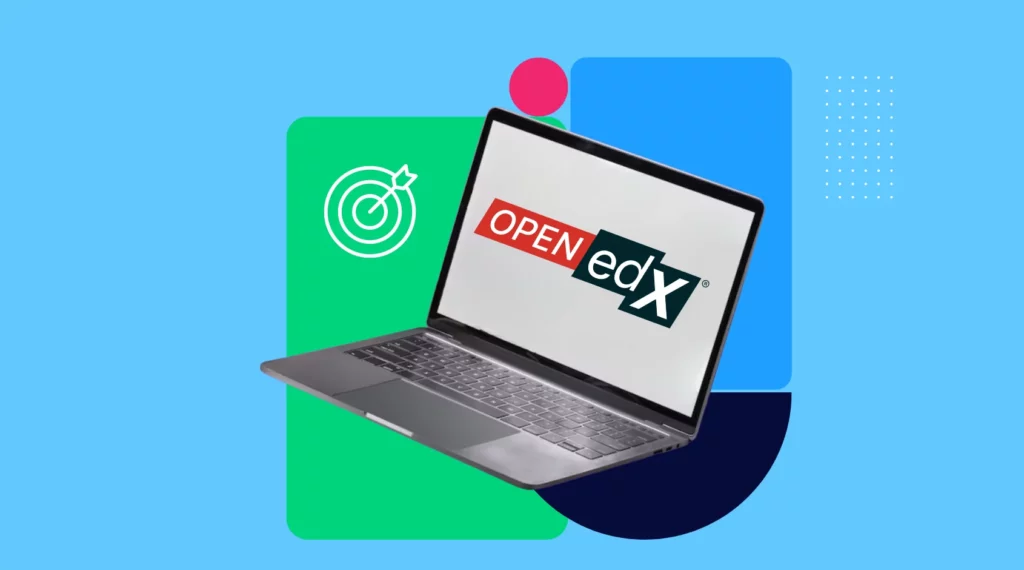
If you are a current or potential edX course instructor interested in exploring the potential of using AI in your courses, here are some steps to get started:
Identifying the Specific Needs and Goals
Consider your specific needs and goals for implementing AI in your courses. Determine which areas could benefit from AI-powered tools and features.
Researching and Selecting Appropriate AI Tools
Research different AI tools for integrating the Open edX LMS. Evaluate their features, compatibility, and user reviews to select the ones that align with your needs.
Implementing and Testing the AI Features
Once you have selected the AI tools, follow the documentation provided by edX to integrate them into your courses. Test the features thoroughly to ensure they function as expected.
Artificial Intelligence has immense potential to transform the educational field, particularly when integrated with the Open edX. By enhancing personalized learning, improving student engagement, and streamlining administrative tasks, AI can improve learning outcomes, save time for instructors, and enhance student satisfaction. While challenges exist, responsible implementation of AI can pave the way for a more effective and engaging learning experience. As an instructor, it is worth exploring the possibilities of AI in education and embracing this exciting technological advancement.

